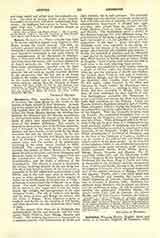

Anderson, William Henry, English Jesuit and writer, b. in London, England, December 26, 1816; d. July 28, 1890. After three years at King’s College, London, he matriculated at Oxford, when about nineteen, and entered Balliol. Soon after, he won a scholarship at University College and took a degree in 1840. He received Anglican ordination, became Vicar of Withyam, and in 1846 of St. Margaret’s, Leicester. In 1850 he was received into the Church in Paris by Father de Ravignan. Ordained at Oscott by Bishop Ullathorne in 1853, he was appointed a lecturer at Ushaw College and afterwards preacher and confessor at the University Church in Dublin. During his stay in Ireland the Franciscan convent of Drumshambo was founded, mainly through his efforts. In 1856 he was called to London by his uncle, Cardinal Manning, whose secretary he remained till he joined the Jesuits in 1872. From 1875 to 1889 he lived in Manchester, doing excellent work as preacher, spiritual guide, and writer.
Father Anderdon began his literary apostolate by writing Catholic tales: “Bonneval, a Story of the Fronde” (1857), “Owen Evans, the Catholic Crusoe” (1862), “Afternoons with the Saints” (1863), “In the Snow, Tales of Mt. St. Bernard” (1866). All these stories, save the first, went through nine or ten editions, and were translated into German and French. Other valuable works from his pen are “Fasti Apostolici” (1882), “Evenings with the Saints” (1883), and “Britain’s Early ‘Faith” (1887). His controversial writings are the very best of the kind, his method being to understate rather than to exaggerate. Among his works the best known are: “Is Ritualism Honest?” “Controversial Papers” (1878), “Luther’s Words and the Word of God” (8th thousand, 1883), “Luther at Table”, “What sort of a man was Luther?” (13th thousand, 1883), “What do Catholics Really Believe?”, “Confession to a Priest” (1881).
His newspaper work displayed a fine sense of irony in treating the polemics of the day. He was ever busy writing for the “Weekly Register”, the (English) “Messenger of the Sacred Heart”, the “Xaverian”, “Merry England“, the “Month”, the “Irish Monthly”, and other serial publications. His last works were “The Old Religion of Taunton” (1890); and “Five Minutes’ Sermons”, the latter completed only in part when he heard the Master’s summons.
EDWARD SPILLANE

